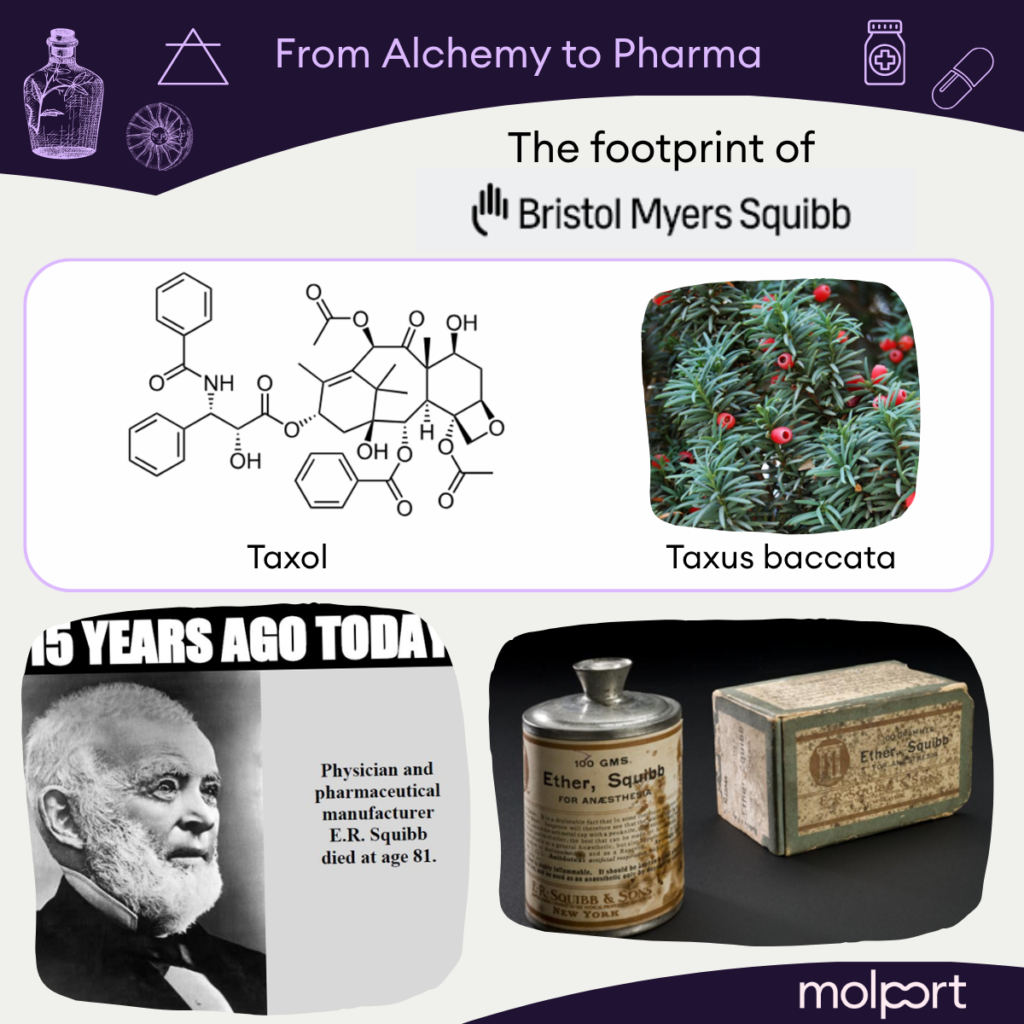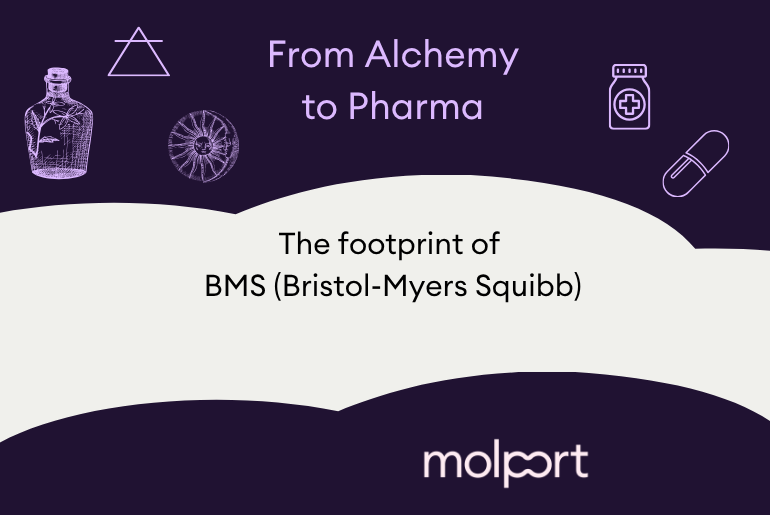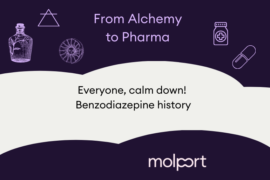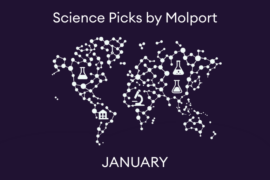Now it is time to speak about Bristol-Myers Squibb (BMS) in our chronological history of pharmaceutical companies.
When we think of BMS, some remarkable achievements immediately come to mind:
- Paclitaxel (Taxol®): isolated in the early 1970s, became a blockbuster cancer therapy) that changed oncology
- Mass production of penicillin during WWII, which saved countless lives
- Opdivo®, a breakthrough immunotherapy first approved for melanoma, which reshaped cancer treatment and later expanded to many other cancers
- And the bold Celgene acquisition, which expanded their pipeline and global reach.
But all of this traces back to 1858, making BMS one of the oldest pharmaceutical companies in the world. Its origins lie with a remarkable man: Dr. Edward Robinson Squibb, a truly special figure.
Dr. Squibb’s story is fascinating. Serving as a naval physician during the Mexican-American War, he was appalled by the poor quality of medicines supplied to the fleet. In one famous episode, he threw the entire batch overboard rather than risk giving unsafe drugs to sailors. He was so disappointed by the standards of these medications that he decided to produce them himself.
In 1858, he founded E. R. Squibb & Sons in Brooklyn. Despite inventing superior methods for purifying ether (a crucial anesthetic at that time, when pain management during surgery was still a significant challenge) and other pharmaceutical processes, he refused to patent his discoveries. Instead, he freely published them so the entire medical community could benefit, an extraordinary act of altruism in an era increasingly defined by private gain.
He also invented the automatic zero burette, a tool that became standard in laboratories, demonstrating his drive not only for better medicines but also for better science.
From Squibb’s ideals of quality, transparency, and innovation, a global biopharma leader was born, one whose impact continues to shape modern medicine.

Other Molport Chronicles posts- from Alchemy to Pharma:
- Toxicology and Preclinical Testing (Animal Models)
- Dose Makes The Poison
- Oldest Pharmacy
- From Apothecary to Alkaloid Pioneer: The Origins of Merck and Modern Drug Discovery
- GSK legacy shaped by Beecham’s Pills and Research Laboratories
- The journey of ASPIRIN
- The footprint of Bristol-Myers Squibb (BMS)
- BASF: From dyes to drugs






